|
Philip Sutton died unexpectedly on 12 June 2022. Philip was a co-founder of Save the Planet (now a branch of Fusion party) and the author of much of Save the Planet’s climate policy. A memorial will be held for Philip in coming months. Since his sudden death on 12 June, much has been written about Philip Sutton, the visionary thinker behind the “climate emergency declaration”. Philip’s prolific lifetime of work is captured in this Guardian obituary. Since the 1970s, Philip has published two seminal climate books, authored environmental legislation still in use, drafted legislation that the climate movement should be lobbying governments on, and shaped the climate conversation globally. Philip was not a climate scientist but he grilled climate scientists to reveal the assumptions and realities behind often opaque scientific statements. Philip worked long hours every single day at the theoretical “coalface” of climate thinking. Below the grassroots, down the end of a long tunnel - far from light, air, recognition, financial support. The work’s urgency was his drive; the urgency for a future for his kids and all vulnerable populations and ecosystems. Anyone that recognised Philip’s brilliance is wondering how we carry on his legacy. Philip’s consolidated climate thinking on Climate Rescue is perfectly summarised in this November 2021 interview. Philip’s immediate thinking preceding his death is summarised in this email to the Victorian Climate Action Network. A group that was to work on his current Climate Rescue project is continuing that work. Philip was always decades ahead of the “mainstream” climate movement, which has recognised and used some of his thinking but not the more difficult aspects. It is inevitable that we will have to engage with the these more difficult aspects if we decide to have a future. This blogpost aims to highlight the aspects of Philip’s core framework that has not been widely understood or embraced by climate movements. It is a call for climate movements to understand and rally around Philip’s thinking in the quest to restore a safe climate. The grief that many are feeling to lose this brilliant, big-hearted, deep thinker must be harnessed to implement what is likely the only path that will save us. A pathway that Philip envisaged over a decade ago. How we restore a safe climate Twenty years ago, when NGOs such as Greenpeace were campaigning on cuts of 60% emissions, Philip and a couple of others (Adrian Whitehead and Matt Wright) were looking at zero emissions. Not net-zero emissions still talked about today but true zero or a near zero emissions society achieved at emergency speed. Philip’s thinking can be summarised by what we need to achieve for a viable future. The fundamentals have not altered in more than a decade and are increasingly validated by IPCC and other bodies as they catch up:
The key here is that the only safe position is to reverse global warming and restore a safe climate (i.e. safe greenhouse gas concentrations and whatever else it takes). Without the combined three actions (zero, drawdown, cooling), we risk tipping into runaway climate change or Hothouse Earth, from which there is no conceivable return. The idea that we can stop warming at an arbitrary point and stay there is conjecture. Targets such as “zero by 2050” are political, not scientific; and suicidal based any analysis of the science. And these three actions are required to occur at emergency speed. Philip was at pains to emphasise that acting at emergency speed requires:
Elements of Philip’s thinking that got “mainstream” legs include
Philip’s (and David Spratt’s) thinking is succinctly captured in this Breakthrough paper, Climate Emergency Explored. Elements of Philip’s thinking that have been adopted by the leading edge of the climate movement are:
Two of Philip’s central ideas have not gained traction with the leading edge or broader climate movement but are absolutely central to avoiding global climate catastrophe and restoring a safe climate are:
Mobilisation and Cooling the planet are discussed in more detail in sections below. Emergency declaration + mobilisation only work hand in hand Declaration and mobilisation go hand in hand - with mobilisation the ultimate goal and declarations just the mechanism to enable mobilisation. For example:
Philip outlined what a national Climate Emergency and Mobilisation Act would look like. It involved a lot of government restructuring and goal setting to prioritise the work needed to reverse global warming. Philip emphasised the appropriate steps for target setting:
Policy makers and mainstream Environmental NGOs (ENGOs) instead prefer to set targets based on what they think is “realistic” with a few tweaks to business as usual. This is suicidal when winning slowly means losing. In 2013 Philip, working with a team that included Adrian Whitehead and Tiffany Harrison, developed a plan for what mobilisation could look like at the local government level. This work later became core material that underpins the work of CACE (Council and community Action in the Climate Emergency). Mobilisation is hard; local governments simply do not have the budget to achieve all that needs to be done. State governments and federal governments with their big economic and regulatory levers are the levels of government that could truly implement an emergency response, but state and federal governments in 2016 weren’t anywhere near declaring a climate emergency let alone mobilising. That’s why the Climate Emergency Declaration campaign was focused on local government. As far back as 2008 in this ABC interview with Robyn Williams and in his seminal 2008 book with David Spratt, Climate Code Red, Philip talked about going down to any level of governance - down to the household or individual if required, for traction on mobilisation. Declaration + mobilisation is inconvenient. It cannot exist in a neoliberal frame, which prioritises infinite growth and the welfare of corporations. Mobilisation is a green-new deal, hard targets and working out what we do to meet those targets. It also means regulation to stop bad things, not just economic signals to slowly phase them out. Central governments need to wrest back power from decades of neoliberalism to make mobilisation happen. On the idea of “economic signals”, Philip recently did a back-of-the-envelope calculation for a carbon tax that would get us to zero in under ten years. He estimated the tax would need to be around $300 a tonne - up a bit from the “ambitious” $50 we might hear. As Philip then said, “a $300 carbon tax would lead to chaos”. While a tax might have a role in subsets of activity, we need central planning to guide this kind of massive infrastructure work. Cooling the planet Point three of the pathway to restoring a safe climate, cooling the plant, is perhaps the most misunderstood. Geoengineering as a whole is frowned upon by many people keen on saving the planet primarily because it is seen as an “out” for fossil fuels - that they might use it as a reason to keep emitting. Needless to say, we need to campaign for both “negative emissions” and cooling the planet at emergency speed. The term geoengineering represents a broad range of options to cool the planet but Philip usually only referred to solar radiation management (increased albedo to reflect the sun) for cooling the planet, as in general solar radiation management represents a much lower risk option to create a global cooling than some of the options more broadly defined under the term geoengineering (eg BECCs). Solar radiation management includes relatively low-tech options such as painting roofs white or highly reflective roads, to more complex options as reflecting sunlight back out into space by enhancing cloud formation, or maintain (reflective) levels of sulphur dioxide in our atmosphere as we progressively shut down coal power plants. To reject the imperative of solar radiation management or alternatives outright is to not understand the inconvenient reality that at “equilibrium”, we have already reached around 2.5C of warming and built in 25 metres of sea level rise; most of this warming has not yet manifested in average surface temperatures due to:
As such, zero emissions alone, if achieved today, would very likely not save us. Zero emissions alone is a narrative hangover from decades ago. It persists in climate circles. Zero emissions alone ignores the numerous feedback loops we have tripped that are speeding up warming, the 1C of cooling we are currently engineering, and the global lag in realised surface temperature. If we care enough about people, populations, ecosystems, the web of life, a future for ourselves and our kids, we will take radical action to cool the planet. Any action should aim to minimise negative side effects; however, we’ve left it too long to imagine we come out of this unscathed. We need to go with the lesser of many evils. Climate campaigns coming together? Can the climate movement get behind Philip’s framework to restore a safe climate? In a call for them to lead, the role of E-NGOs (environmental NGOs) has to be highlighted here. There is a strong case that the large E-NGOs (yes, all of them) have held back progress as they clung to the idea that telling the truth wasn’t good business and campaigning for incremental action was the best way to get outcomes. E-NGOs vehemently fought “emergency”, the E-word, until grassroots campaigns - starting in Darebin Vic, got the ball rolling with the initial climate emergency declaration in 2016. There were tears, including Philip’s, among campaigners that had lobbied Darebin council when that first climate emergency motion passed in December 2016. (Special mention here to other Darebin campaigners, such as Adrian Whitehead for campaigning the council on a climate emergency declaration; Jane Moreton and her booklet that went global, Don’t Mention the Emergency?; Margaret Hender and Mik Aidt for their work on the Climate Emergency Declaration.) In 2019, when the large E-NGOs finally noticed the emergency campaign had gone global, after it spread like wildfire through the UK councils, they raced to catch up to the bandwagon. Once they’d wrested the reins from grassroots campaigners, the large E-NGOs steered the wagon away from the trackless unknown of what a climate emergency declaration and mobilisation entails back onto the sealed road of feel-good rhetoric and incremental change. Targets were watered down, the idea of mobilisation vanished and the declaration plus a few council actions was the outcome. Councils that had declared were looking at each other for guidance on how to mobilise. Some of them had a bit of a go and CACE provided a framework for that mobilisation. While there was resulting innovation that has influenced higher levels of government, none wanted to go too far out on a limb. This Breakthrough paper is a survey of what declared Australian councils had progressed around February 2020 with regard to climate emergency imperatives, and a 2022 Australian survey by Cedamia. Since 2019, the rise of Extinction Rebellion, Greta Thunberg and Fridays for Future (School Strikes) mean that grassroots are again visibly leading. However, ENGOs have become intertwined with School Strikes around the world. XR’s demands are:
Last word Most governments will take the easiest path available so campaigners need to be laser sharp and unanimous in their messaging if they want a meaningful outcome. Rather than campaigning for what we think governments will tolerate we need to campaign for what actually needs to be done, ie we need to campaign to reverse global warming and restore a safe climate. Philip was optimistic that saving the planet was still feasible if we adhered to emergency speed to negative emissions (zero plus drawdown) and cooling the planet, underpinned by declaration plus mobilisation. Can we rally around Philip’s core thinking to save ourselves?
5 Comments
When the name for Vote Planet’s new federally registered entity FUSION: Science, Pirate, Secular, Climate Emergency went up on the AEC’s website this week, there was a minor Twitter flurry. Including this one from the election MC Himself! And this personal fave. This four-party salad (now five!*) was forced on Vote Planet and other FUSION parties by the ironically named "Party Integrity Bill" passed by LNP, ALP, One Nation. Vladimir Putin is taking notes on this Bill. Targeting micro and minor parties, the Bill tripled party membership requirements for registered political parties without an MP. And the Bill wasn’t grandfathered in, giving only three months to produce an additional 1000 members above an beyond their existing 500 or get de-registered. Almost all affected parties have scrambled into mergers, or have or will be deregistered. Vote Planet's naming criteria for the new party was that it had the words "Climate Emergency". Perhaps, we should have had more criteria. However, a party name has to not only be noticeable on the ballot but also be recognisable to the members from the different parties when the AEC calls to confirm their membership in the scrambled re-registration process. (But AEC is now checking the name Climate Emergency Action Alliance: Vote Planet with our combined members - long story).
When you're a new minor party, even someone making fun of your name is welcome so please keep it coming. The minor parties that formed FUSION each have a policy specialties that create FUSION's broader platform (climate emergency; evidence-driven advancement; secular humanism; freedom of information, and individual privacy and rights) and that help make us more than the sum of our parts. We dream of a large healthy crossbench, populated by independents and other progressive minor parties that can take policymaking back from lobbyists and closed party-room deals and return it to parliament. Please help us realise this at the 2022 election. *FUSION: Science, Pirate, Secular, Climate Emergency has been recently joined by registered ACT party, Australian Climate Justice. Four experienced political parties, each with deep special interests, are fusing to form something more powerful than the sum of our parts. A party determined to secure a safe climate and environment, a humanist society, and free culture - held together by science.
This fusion was initially driven by the 'Party Integrity Bill' introduced by LNP and supported by ALP and One Nation, that required minor parties to re-register with three times as many members. The Bill has turned out to be serendipitous - a catalyst for four distinct specialisations to merge and for Fusion to have a deep but far reaching policy platform. We're fighting back — small parties are under attack, so we're becoming a larger party — broadening our membership base, geographical reach, and policy scope. We are becoming: FUSION: Science, Pirate, Secular, Climate Emergency A merger of the Science Party, Pirate Party, Secular Party, Australian Climate Change Justice Party, and Vote Planet. Fighting the dystopia, corruption, and economic inequity of today’s politics, we bring our specialist focuses of the climate emergency, unlocking the future, free culture, and secular humanism to the fore. Climate warriors, farmers, rationalists, doctors, solarpunks, makers, teachers, activists, ethical hackers, community workers, extinction rebels, and public servants - all have combined to create a new light in the Australian political arena. Fighting dystopia. Fusing for a brighter future. Fusion will create a bright future for all Australians. By Kammy Cordner Hunt
The Northern Hemisphere summer season of 2021 was a terrifying array of catastrophic weather events across 100s of countries on all continents, the likes of which have never been recorded before: heatwaves, wildfires, storms, floods, ice-melts. This is a glimpse of what we are in for. I dread our Australian Summer coming soon. In the midst of all this, the IPCC’s report came out. All of this should shock us into action, but will it? “Action” lies in the hands of governments and those in power. Do ANY governments have the right people in power to act? Will those mighty global corporations (those that wield a power that’s even greater than any government’s) let them act, even if they wanted to? Vote Planet wants people to do just that, vote for people who will make decisions on behalf of our planet’s future, because that is OUR future, and that of every other living thing sharing the planet with us now, and (hopefully) in time to come. Some overseas events during the Northern Summer (due for us in the South this summer?): Heat wave 2021: Climate scientists warn about a new normal (nbcnews.com) Greece fires: Death toll rises as blaze hits holiday resorts | news.com.au — Australia’s leading news site Wildfire in Northern Ireland declared a 'major incident' NASA Images Capture Worst Siberian Wildfires in 10,000 Years (sciencealert.com) 46 fires burning across Florida, where risk remains high - South Florida Sun Sentinel - South Florida Sun-Sentinel California crews battle 12 big wildfires | 7NEWS Bush fires in Iceland, page-1 - HotCopper | ASX Share Prices, Stock Market & Share Trading Forum Italy bushfires: Hundreds evacuated as wildfires approach Campomarino (thenewdaily.com.au) Turkey fires ‘like a horror movie’ as blazes hit Mediterranean | news.com.au — Australia’s leading news site Greenland experienced 'massive' ice melt this week, scientists say | Reuters Record-breaking June 2021 heatwave impacts the U.S. West | NOAA Climate.gov Climate crisis made deadly German floods ‘up to nine times more likely’ | Climate crisis | The Guardian Belgium, Netherlands and France also hit by deadly flooding NORTHERN ITALY overwhelmed by HUGE HAIL, LANDSLIDES and FLASH FLOODS. It is still ALERT (PHOTOS and VIDEO) »ILMETEO.it (italy24news.com) Some unnamed fossil fuel industry evil-doers appear to be threatening to hurt Auspol politicians’ children if the politicians don’t do the fossil fuel industries' bidding. It looks as though this is also happening to politicians around the world. This claim is based on deduction in lieu of direct evidence: blackmail is the only logical explanation for why anyone with some power to avert the coming climate catastrophe, would hurl their own kids into the apocalyptic abyss in coming years, in order to save them from harm today. There’s the slim possibility that some of the politicians remain wilfully ignorant of climate threats but this doesn’t cut it. Even if the politicians thought there was only a 10% chance of a plane crashing, there’s no way they would put their kids on that plane. And our current chance of a ‘Global Climate Catastrophe’ is now way over 50%. It’s worth considering that these politicians are all psychopaths; they don’t care what happens to their kids, or care more for money and power granted by the fossil fuel industry today. However, psychopaths reportedly care about their own fate and these politicians have signed up to a mutual suicide pact, perhaps it is the older ones who think the climate collapse will occur beyond their end of life. A climate campaigner asked Mark Butler, then ALP shadow Minister for Climate Change (he apparently knew too much so was replaced last year), ‘Don’t you love your children?’. Because why would anyone that knew so much about global warming and loved their children promote the suicidal target of Net zero by 2050 as safe? In response to the question, Mark Butler immediately lost his measured cool (by all accounts for the first time ever), demonstrating that he does in fact love his kids, but more immediate threats than a global catastrophe hang over him and his children . So how should we save a chamber full of MPs suffering under the most vicious blackmail imaginable? Easy: we vote them out. Then the blackmailers have no hold on them. Just as with any spy blackmailed into being a double agent, we need to replace these MPs immediately with those who have not yet fallen under the searing hand of the fossil fuel industry. By Adrian Whitehead
So sorry to hear about the floods in Europe. Best wishes to all those affected and condolences to those who lost loved ones and friends. Similar floods in 2002 followed by the European heat wave in 200, triggered the start of my climate campaigning. What was obvious back in 2003 was if we didn't want these events to occur with increasing frequency and severity, we needed to cool the planet immediately. Our slogan back then was Zero Emissions Now. Eighteen years later the world is planning for 30-50+ years of increasing devastation through the adoption of the suicidal target of net zero emissions by 2050. Net Zero won't even stop the heating because of the degradation of natural systems that are also now heating the planet (loss of carbon from soil, forests, methane from former permafrost, loss of the summer Arctic ice etc). This 2050 target is immoral, unethical, and to be blunt, a crime against humanity. Society as we know it will collapse if we do not do better. What we need now is an emergency speed program with three key foci:
We call this Emergency Mobilisation. Our ecology is already collapsing, the collapse of our societies has started, global food production will be pushed to the point where there is not enough food to feed the world. The world's poor will starve and suffer first. This future is not set in stone, but to avoid it we must take on our existing politicians and their corporate backers. Our current politicians have shown again and again they are not mentally equipped to deal effectively with the climate emergency. If you are in Australia and want to play a part in saving us all please join us at voteplanet.net and help us at the next federal election - this election is one of our last chances to make a real difference and avoid the warming levels that will push us to collapse.  By Andrea Otto I want to talk about habitat and in particular our native animals and their reliance on trees. Many of our birds and most of our tree dwelling animals rely strongly on hollows. I think we need an education campaign around hollows because so many people don’t know or understand the interconnection between our birds and animals and hollow trees. It takes around 80 years for our trees to produce a hollow for our smallest inhabitant. As the tree grows so do the hollows. The home is then too big for that smaller critter and so it moves out and that hollow is then used by something bigger. Even hollows on the ground are important as they provide habitat for many small mammals, reptiles and invertebrates along with fungi’s and other plants. When we understand this, it isn’t hard to see that the loss of old trees is one of the main reasons that Australia extinction rate is so high. Protection of our old trees is paramount to native species survival including our own. Australia is one of the worst developed countries in the world for broad scale deforestation; an MCG area of forest or woodland is cleared every two minutes, killing countless native birds and animals. Vote Planet land use policy includes ceasing land clearing, instead subsidising land owners to regrow and maintain forest, and ceasing logging native forests. Please read more on our policies page. For a chance at a future, we need to be acting like the house is on fire. Governments have been promising incremental change for three decades, over which time greenhouse gas concentrations have dramatically increased, increasing warming impacts and setting off all the major feedback loops (tipping points) that were theoretical when governments first started promising incremental change. We need to be reducing greenhouse gas concentrations and reaching huge net negative emissions. It’s all doable and can only be good for us in by any measure, though not so good for the balance sheets of people emitting obscene amounts of greenhouse gases and mining coal and gas. 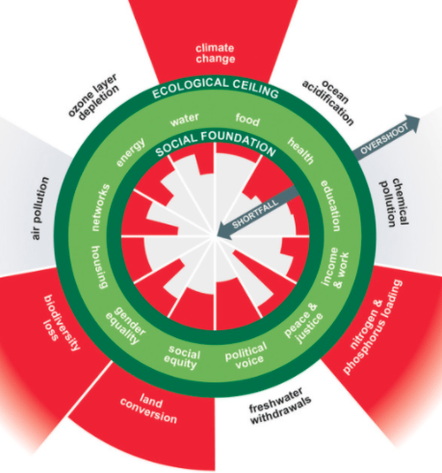 We save the planet not via suggestive ‘economic signals’ but by hands on steering down the right path:
We achieve a safe future by dropping the ponzi scheme of perpetual GDP growth. Instead we adopt a model such as Doughnut Economics (image on right). The idea that we shape society to live within the limiting boundaries of climate change, pollution, ocean acidification, biodiversity loss etc. while maximising societal wellbeing measures across housing, equity, education, political voice, etc. So simple, so far removed from what we are doing. What the hell are we waiting for? Naturally, feel free to facebook like articles on a government taking an incremental step in the correct climate direction, but point out how far they are from where we need to be. Read more on Vote Planet's policy page. |
AuthorsBloggers on this page include Adrian Whitehead, Philip Sutton, Bryony Edwards, Andrea Otto, David Lughermo. Categories
All
Archives
July 2022
|
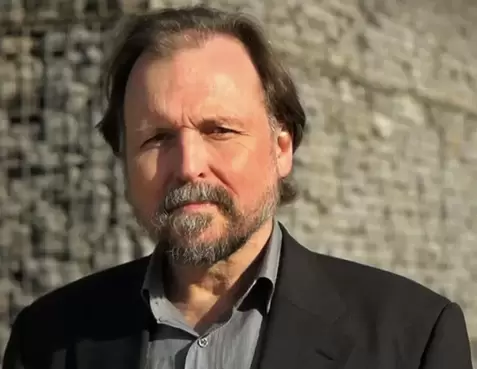




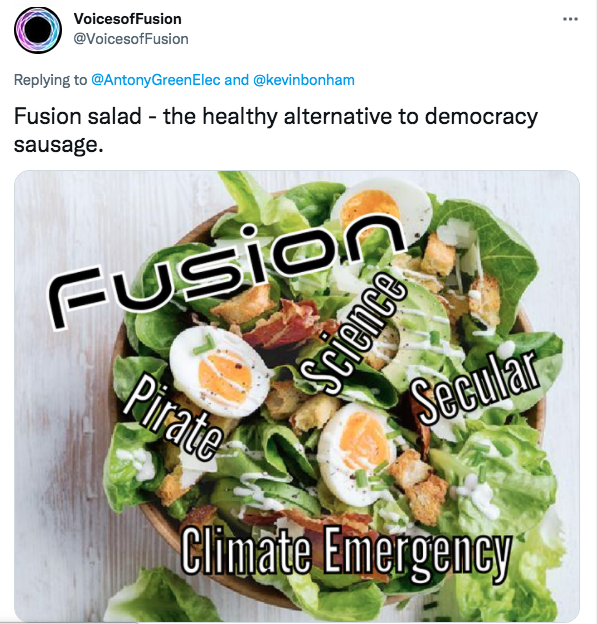

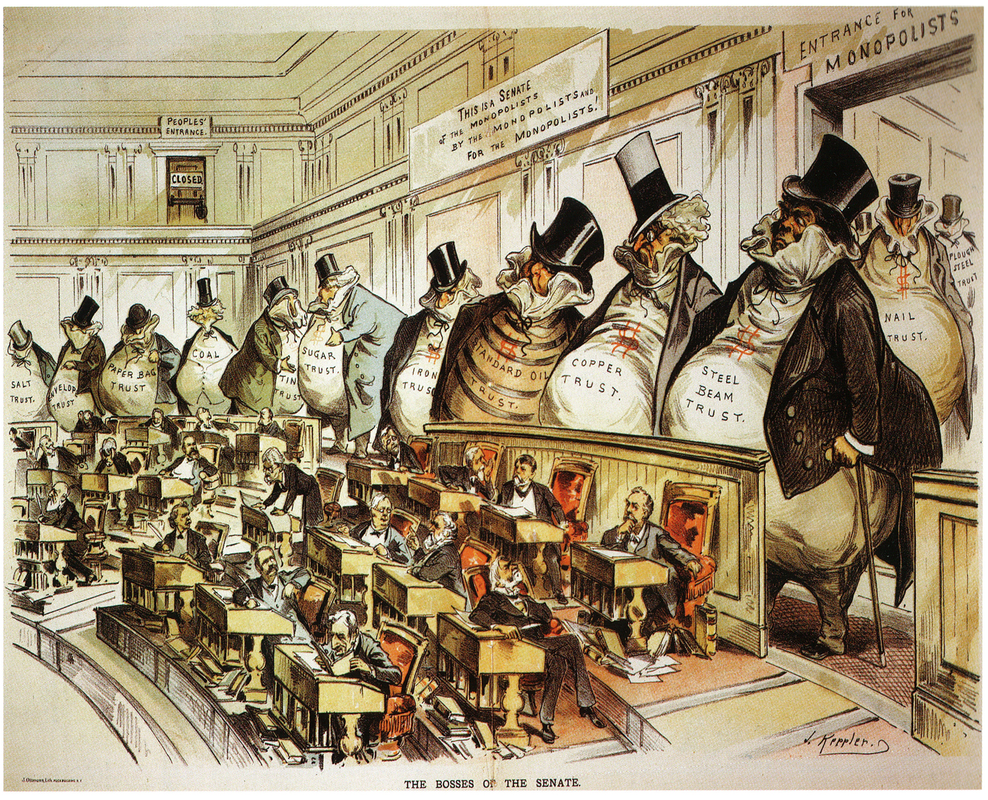
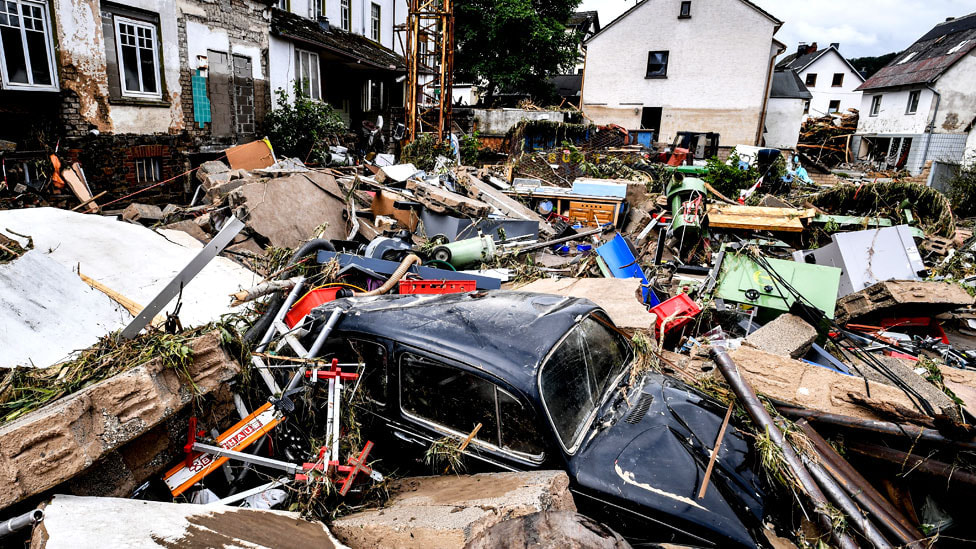
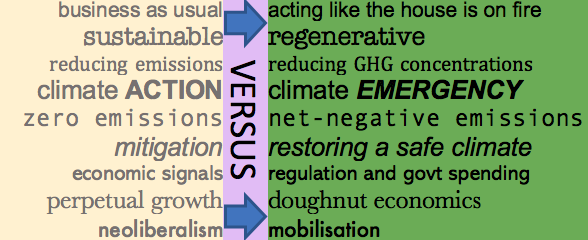
 RSS Feed
RSS Feed
